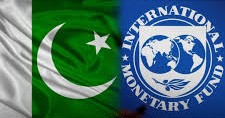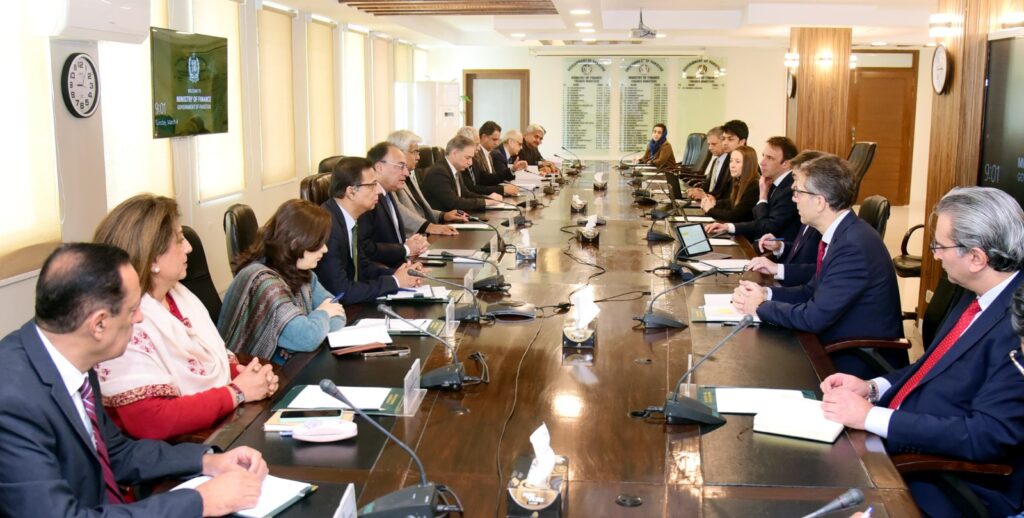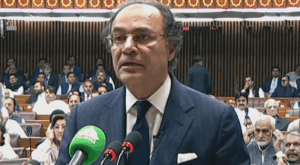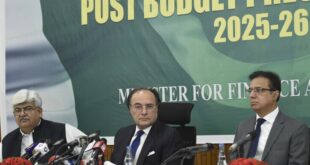
The International Monetary Fund (IMF) has called on the government of Pakistan to swiftly implement reform measures aimed at reducing expenditures. In a recent meeting with the Cabinet Division, the Ministry of Finance, and the Cabinet Secretary, discussions focused on rightsizing various government departments to streamline expenses. The IMF emphasized the urgency of these measures, underscoring the necessity of timely implementation to maintain fiscal discipline.
In addition, the IMF has demanded a comprehensive plan to bridge the revenue shortfall for the upcoming quarter. The delegation clarified that a shortfall is unacceptable, mandating the government to generate an additional Rs 300 billion within the next quarter. To enhance revenue collection, the Federal Board of Revenue (FBR) has been instructed to take concrete actions under the Compliance Risk Management and Risk Improvement Plan.
Discussions also highlighted large retailers operating outside the tax net in major cities, including Islamabad, Karachi, and Lahore. The IMF has directed authorities to accelerate recoveries from high-risk cases in these cities, linking their resolution to bridging the revenue gap.
Furthermore, the IMF has sought details on 600,000 audit paras, requesting explanations for delays in fund recoveries. It has insisted on a structured follow-up mechanism, pressing for immediate accountability measures and the urgent appointment of a Chief Accountant General to oversee the process.
The Ministry of Energy and the Ministry of Petroleum engaged in discussions with the IMF delegation, reviewing the performance of the power and petroleum sectors. Talks also covered Islamic banking initiatives, the State Bank of Pakistan’s Refinance Scheme Transition, and Development Finance policies. The IMF further examined the operationalization of the Bank Resolution Framework, aimed at enhancing financial stability.
Negotiations on the government’s solar policy remain ongoing, as officials seek to address the IMF’s concerns. Key officials, including the Secretaries of Power, Petroleum, and Finance, are presenting briefings on the performance of distribution companies (DISCOs), circular debt, and privatization efforts.
Efforts to reduce line losses, improve electricity bill collection, and curb power theft were also highlighted. The government outlined plans to restructure DISCOs’ boards and management, while updating the IMF on privatization progress for three DISCOs. A notable point in these discussions was the government’s plan to reduce electricity tariffs by Rs 8 to 10 per unit, for which the IMF delegation is being taken into confidence.
The IMF has been briefed on the government’s plan to eliminate Rs 3 trillion in circular debt in the gas sector. To achieve this, the government is considering a unified tariff for local and imported gas. Additionally, discussions are underway regarding the division of state-owned gas companies and the inclusion of private sector participation in gas trading to enhance efficiency and economic stability.
Officials revealed that Pakistan’s tax deficit stood at Rs 450 billion as of February, with expectations that no further increase will occur by June. The FBR informed the IMF that tax disputes worth 4 trillion rupees remain pending in courts, with potential recoveries estimated at 300 billion rupees.
To curb the influence of lobbying groups in the trader and real estate sectors, the government is exploring new taxation measures, including additional taxes on beverages and cigarettes, expected to generate Rs 100 billion. Despite an overall revenue shortfall projected at Rs 990 billion, authorities are confident that enhanced tax enforcement can mitigate the gap.

As negotiations enter a critical phase, discussions will also cover budgetary allocations and public relief measures. Both Pakistan and the IMF are working toward a comprehensive financial strategy to tackle the country’s economic challenges while ensuring fiscal sustainability.
 BeNewz
BeNewz



